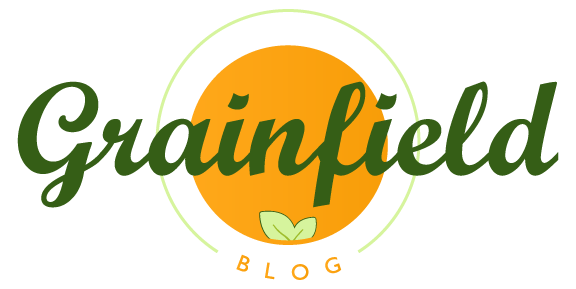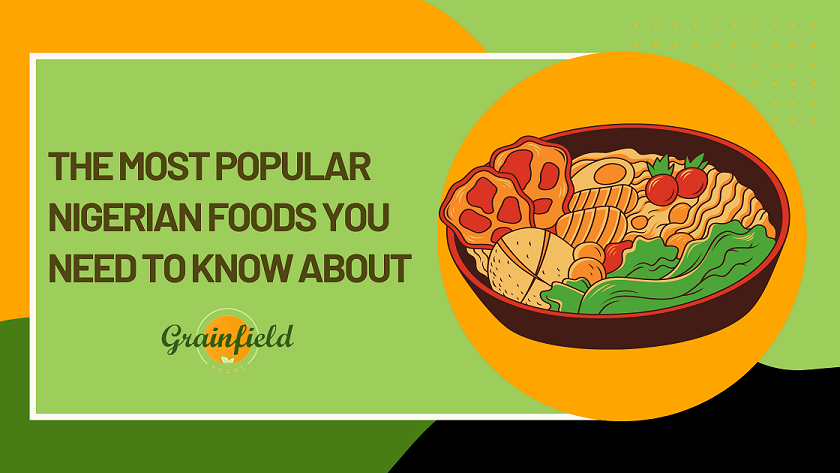The first thing you need to know is that Nigerian foods are probably the best food on the planet. It’s so good that it even has its own UNESCO World Heritage Site status! 6
And while you may have heard of some of these foods before, some other ones are new to the scene and deserve some attention. Be sure to read up on them below
Ogbono Soup
Ogbono soup is a Nigerian soup made with the African elephant’s blood. It is considered to be a delicacy and is eaten by many Nigerians. The name ogbono means “to eat” in the Yoruba language.
Ogbono soup has a unique flavour because it is prepared with the blood of an African elephant. This ingredient gives it a distinct taste that other ingredients cannot replicate.
The soup is also known for its nutritional value. It contains high levels of protein and can help prevent heart disease and help build strong bones and teeth.
Okro Soup
Okro soup is a popular Nigerian soup. It is made with okro. When mixed with palm oil, onions, fish, meat and seasonings. This creates a thick and creamy soup that is enjoyed as a main course for dinner.
The combination of okro and palm oil gives this soup many health benefits. Okro contains vitamin C, beta-carotene and lutein – all of which have been shown to reduce the risk of heart disease. It also has omega-3 fatty acids which help fight off inflammation in the body. That’s not all! Okro also contains iron which helps keep blood cells healthy so you can stay strong throughout your day!
Okro soup is so popular because it combines several ingredients into one delicious dish that can be eaten any time of day without getting bored! And with its many health benefits, there’s no reason why you shouldn’t try it now!
Egusi Soup
Egusi soup is one of the popular Nigerian foods, and for a good reason. The soup is delicious, nutritious, and packed with vitamins and minerals that help keep your body healthy.
Egusi soup is made from egusi seeds. It’s a staple food in the area of Nigeria where Egusi seeds are grown. The beans are dried, ground into a powder, and then boiled in water to make the soup.
Egusi seeds are rich in vitamin A, B6, C, E and K as well as calcium and magnesium. They contain proteins and fibre which help to keep you feeling full longer after eating them.
Egusi seeds are also known for their high levels of iron which helps prevent anaemia in women who need more iron than men do (for example during pregnancy).
Egusi seeds can be eaten raw or cooked without losing their nutritional value or flavour! Egusi seeds can be added to salads or other dishes like soups by sprinkling them on top before serving them up!
Bitter leaf Soup
Bitter leaf soup is one of the popular Nigerian foods. It is made with leaves of the bitter leaf plant, which are usually boiled together with other vegetables. The leaves are also used to wrap fish or meat before cooking them.
Bitter leaf soup is known for its nutritional value, which is similar to other vegetable soups. It contains vitamins A and C as well as calcium, iron and zinc.
The bitter leaf plant has been used medicinally in many countries for thousands of years, including Nigeria.
White Rice and Stew
Nigerians love white rice and stew, so much that you can find it on almost every table. From a local barbeque to family dinner, Nigerians enjoy their rice and stew.
Rice is one of the most popular Nigerian foods. It is the main ingredient in Nigerian cuisine and is eaten for breakfast, lunch and dinner. Rice is served with various meals such as fried fish or meat, vegetable stew, spicy soup and anything else that may taste good with boiled rice.
White rice is the most popular kind of rice in Nigeria because of its nutritional properties. White rice has all carbohydrates converted into glucose which gives it high nutritional value as well as provides the energy needed by the body to function properly.
It also contains many vitamins such as thiamine (Vitamin B1), niacin (Vitamin B3) riboflavin (Vitamin B2), folic acid and Vitamin E among others which give white rice its health benefits.
Jollof Rice
Nigerian jollof rice is a staple dish in many Nigerian households. It has been an important part of Nigerian culture for generations, and it is still served everywhere. Jollof rice is eaten as a main course and can be accompanied by other meals
Jollof rice is made with a special blend of spices that gives it its distinctive taste and aroma. These spices include ginger, onion, tomatoes, fish and pepper etc. The rice grains are then cooked in a saucepan until they are soft and tender.
The spices give jollof rice its unique flavour and aroma; however, it also contains protein from the dried fish flakes which provide more energy than carbohydrates found in other foods such as white rice or pasta. This means that jollof rice can be eaten as part of a balanced diet without worrying about gaining weight because it contains all the vitamins needed by humans to stay healthy!
Suya
Suya is street food from Nigeria. The dish is made with meat and spices, often served on a stick and cooked on an open charcoal fire.
The word suya comes from the Hausa language and means “to cook” or “to boil.” It’s thought that the dish originated in the Northern part of Nigeria as a way for Hausa people to make money by selling their meat on street corners, but it’s now popular throughout Nigeria.
The dish is nutritious because it combines meat with spices, which increases the taste, helps the meat stay moist, and makes it easier to consume quickly.
I hope that you now have a better understanding of the most popular Nigerian foods, and I hope that you can now go out and try some!
If you haven’t already tried any of these foods, then I encourage you to do so. They’re all delicious, so it won’t be hard to find something that suits your tastes. Let us know your thoughts on these meals in the comment section below


